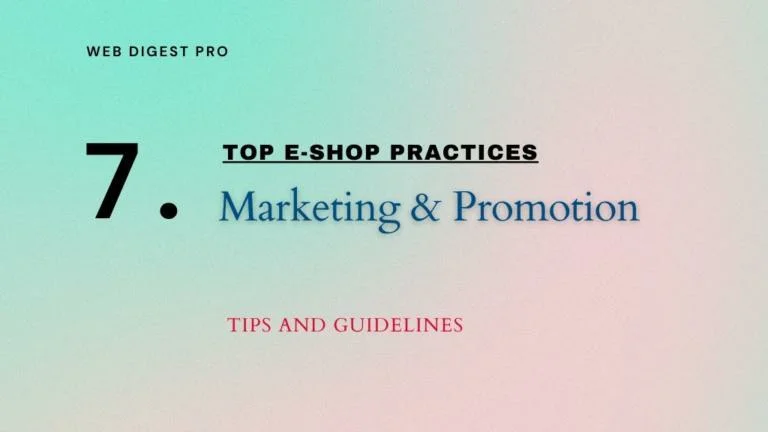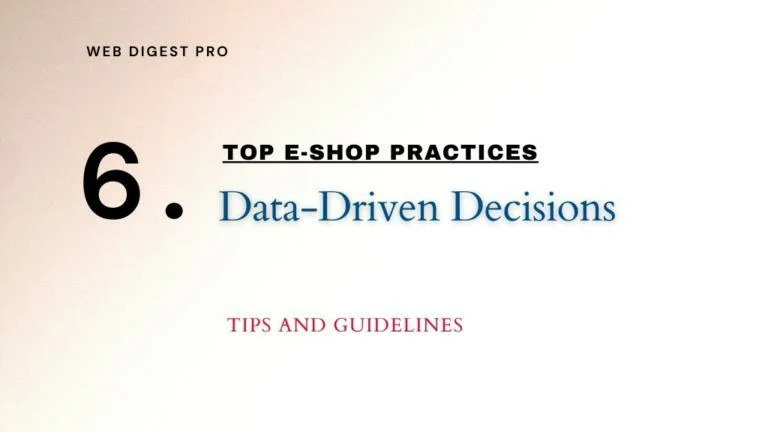Dropshipping has become an attractive option for entrepreneurs looking to dive into the e-commerce world without the burden of managing inventory. This business model offers an opportunity to start an online store with minimal upfront costs and flexibility. Here’s a comprehensive guide on how to launch a successful dropshipping e-shop.
Contents:
- Understanding the Dropshipping Model
- Choosing the Right Products and Suppliers
- Conducting Product Research
- Building Strong Supplier Relationships
- Designing a User-Friendly Online Storefront
- Focus on User Experience and Design
- Branding and Visual Appeal
- Creating Compelling Product Listings
- Ensuring Secure and Reliable Payment Methods
- Implementing Effective Marketing Strategies
- Utilizing Customer Feedback for Continuous Improvement
- Key Takeaways for Success
1. Understanding the Dropshipping Model
Dropshipping allows you to operate an online store without holding inventory. Instead, when a customer makes a purchase, the product is shipped directly from the supplier to the customer. This model eliminates the need for warehousing and reduces initial investment costs.
Benefits of Dropshipping:
- Low Overhead Costs: Avoids expenses related to inventory and warehousing.
- Scalability: Easily expand your product range and reach without logistical constraints.
- Flexibility: Quickly adapt to market trends and customer preferences.
2. Choosing the Right Products and Suppliers
Selecting the right products and suppliers is crucial for the success of your dropshipping e-shop. Here’s how to approach this process:
Conducting Product Research
Start by researching trending products and assessing market demand. Utilize tools and analytics to identify popular items and emerging trends within your niche.
- Trend Analysis: Use tools like Google Trends or industry reports to find high-demand products.
- Competitor Research: Analyze what successful competitors are offering and identify gaps in the market.
Building Strong Supplier Relationships
Establish partnerships with reliable suppliers who offer quality products and dependable shipping. Effective communication and clear agreements are essential.
- Supplier Vetting: Research potential suppliers thoroughly to ensure they meet your quality and reliability standards.
- Negotiation: Discuss terms, shipping times, and return policies to align expectations.
Tip: Build and maintain strong relationships with suppliers to ensure smooth operations and product quality.
3. Designing a User-Friendly Online Storefront
Creating a professional and easy-to-navigate online store is vital for a positive shopping experience.
Focus on User Experience and Design
Choose a clean, intuitive design that makes it easy for customers to browse and purchase products. Key design considerations include:
- Navigation: Implement clear categories and a search function to help users find products quickly.
- Mobile Optimization: Ensure your store is responsive on mobile devices to cater to the growing number of mobile shoppers.
Branding and Visual Appeal
Consistent branding and high-quality visuals help establish a professional image and attract customers.
- Brand Identity: Develop a cohesive brand identity with a logo, color scheme, and typography that reflects your business.
- Product Images: Use high-resolution images and create engaging product descriptions.
Tip: Invest in a user-friendly design and strong branding to enhance the shopping experience and build trust with customers.
4. Creating Compelling Product Listings
Effective product listings are essential for driving sales and converting visitors into customers.
- Detailed Descriptions: Write clear, detailed descriptions that highlight the features and benefits of each product.
- SEO Optimization: Incorporate relevant keywords to improve search engine visibility and attract organic traffic.
- Customer Reviews: Encourage reviews to build credibility and provide insights for potential buyers.
Tip: Craft engaging and informative product listings to enhance visibility and appeal to potential customers.
5. Ensuring Secure and Reliable Payment Methods
A secure and efficient payment process is crucial for customer trust and transaction success.
- Multiple Payment Options: Offer various payment methods, such as credit cards and PayPal, to accommodate different preferences.
- Security Measures: Implement encryption and fraud protection to safeguard customer information.
Tip: Provide diverse payment options and prioritize security to build customer confidence and ensure smooth transactions.
6. Implementing Effective Marketing Strategies
Marketing plays a key role in driving traffic and boosting sales for your dropshipping e-shop. Employ the following strategies:
Social Media Marketing
Leverage platforms like Facebook and Instagram to promote products and engage with your audience. Strategies include:
- Content Creation: Share engaging posts, product highlights, and promotional offers to attract and retain followers.
- Targeted Advertising: Use paid ads to reach specific demographics and increase visibility.
Email Marketing
Utilize email campaigns to stay connected with customers, promote new products, and offer special deals.
- Newsletter Campaigns: Send regular updates and personalized offers to your email list.
- Automated Responses: Implement automated emails for order confirmations and follow-ups.
Tip: Use a combination of social media and email marketing to reach and engage your target audience effectively.
7. Utilizing Customer Feedback for Continuous Improvement
Customer feedback is invaluable for refining your dropshipping business. Collect and analyze feedback to make informed improvements.
- Surveys and Reviews: Gather customer opinions through surveys and reviews to understand their experiences and expectations.
- Customer Service: Provide excellent support and address any issues promptly to enhance satisfaction and loyalty.
Tip: Actively seek and act on customer feedback to continuously improve your offerings and customer experience.
8. Key Takeaways for Success
Starting a successful dropshipping e-shop involves understanding the model, selecting the right products and suppliers, and implementing effective strategies. Key steps include:
- Conducting thorough product research and building strong supplier relationships.
- Designing a user-friendly online store and creating compelling product listings.
- Ensuring secure payment methods and employing effective marketing techniques.
- Utilizing customer feedback for continuous improvement.
By following these guidelines, you can build a successful dropshipping e-shop and tap into the opportunities of the online marketplace.
Conclusion
Starting a dropshipping e-shop can be a rewarding venture with the right approach. Embrace the flexibility and scalability of the model, focus on quality products and customer experience, and implement effective marketing strategies. With careful planning and execution, you can create a thriving online business and reach a global audience.
Sponsored Links
Written by Dimitrios S. Sfyris, founder and developer of AspectSoft, a software company specializing in innovative solutions. Follow me on LinkedIn for more insightful articles and updates on cutting-edge technologies.
Subscribe to our newsletter!












+ There are no comments
Add yours